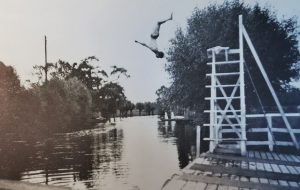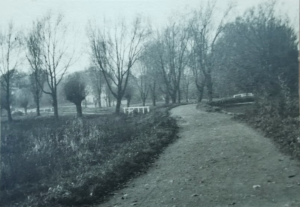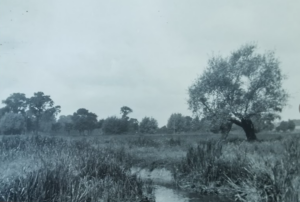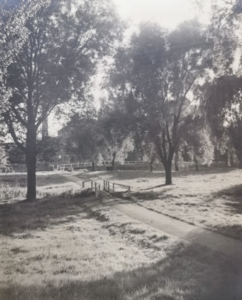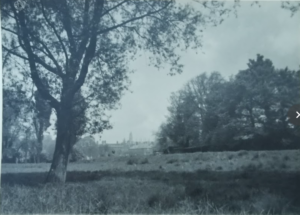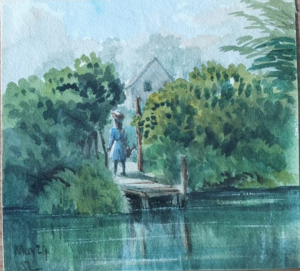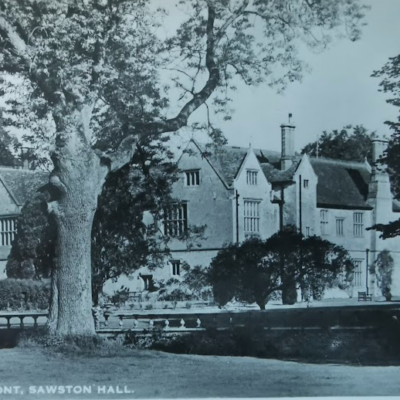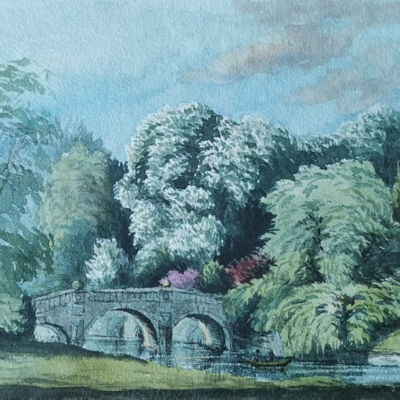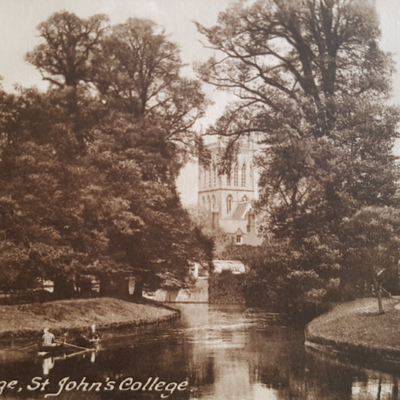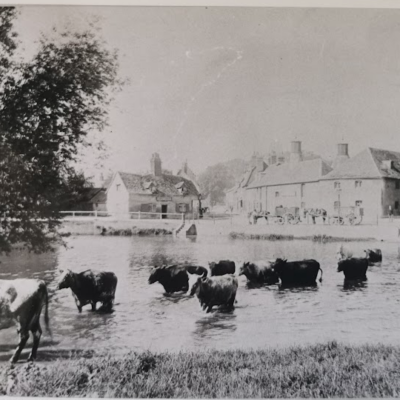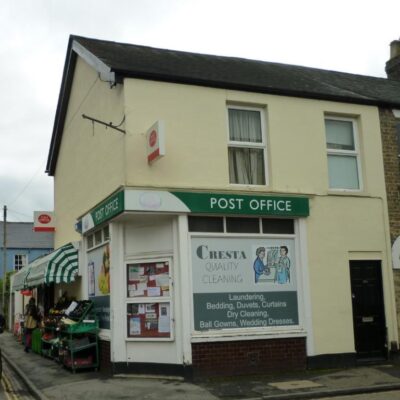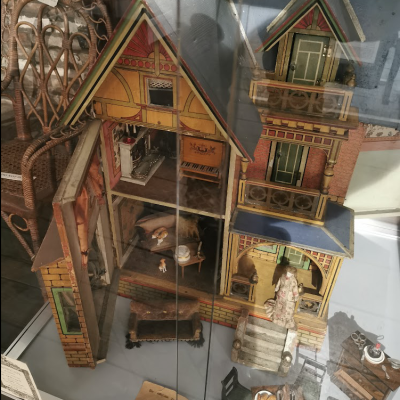Search by topic
- archaeology
- Building of Local Interest
- charity
- church
- crime
- dressmaker
- fire
- Great Eastern Railway
- Listed building
- Mapping Relief
- medieval
- oral history
- poverty
- Public House
- Rattee & Kett
- Religious House
- Roman
- scholar
- school
- Then and Now
- tudor
- women
- work
- world war one
- world war two
Search by text
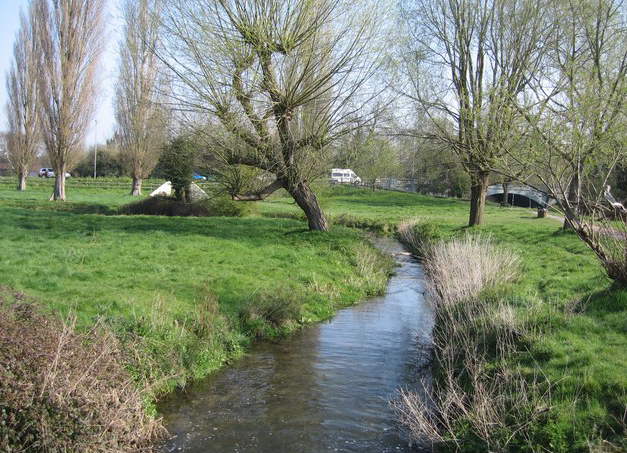 Stream on Sheeps' Green
Stream on Sheeps' GreenSheep’s Green
History of Sheeps' Green
Charley Driver diving at Sheep’s Green swimming station. Driver was custodian, life save and coach from 1903 to 1937. He was on duty dawn to dusk seven days a week and saved 90 lives. Jack Overhill also swam at this location every day for 62 years.
Cambridge City Council website states:
Sheep’s Green is situated to the west of Coe Fen and runs along the west bank of the river Cam. It is an ideal place to walk along the river and get away from the busy city streets.
Classed as a Local Nature Reserve, the fen is managed to encourage an increase in natural diversity and is intended to remain as a water meadow habitat with periodic flooding.
For six months of the year, April to October, Sheeps Green is grazed on by cattle and at times horses. Sheeps Green has an outdoor learner pool which is open to the public in the summer months.
Gwen Raverat notes in Period Piece p.34 that the bathing places at Sheep’s Green and Coe Fen were on the upper river so that the bathers didn’t have to swim in the raw sewage from the city.
Enid Porter, Cambridgeshire Customs and Folklore p236, wrote about the swimming at Sheep’s Green / Coe Fen.
In A House By The River, M E Keynes notes p.123, that in 1895 Professor George Darwin protested to the proposal for ‘the erection of bathing sheds for women on the portion of Sheep’s Green known as Laundress Common.’ The resulting campaign was successful and Arthur Deck, town councillor and ally of George Darwin, wrote the following confidential note after a meeting on 6th December:
Dear Sir, I think we have settled about Laundress Green there will not be any bathing place or will it be interfered with at all so you may enjoy your look out as usual I raised a great many objections to it which I will explain at a future time I told them I was never in favour of Laundress Green and the bathing place will be in the upper stream on the Coe Fen side – about where I first proposed. Yours faithfully, Arthur Deck.
Contribute
Do you have any information about the people or places in this article? If so, then please let us know using the Contact page or by emailing capturingcambridge@
License
This work is licensed under CC BY-NC-SA 4.0





